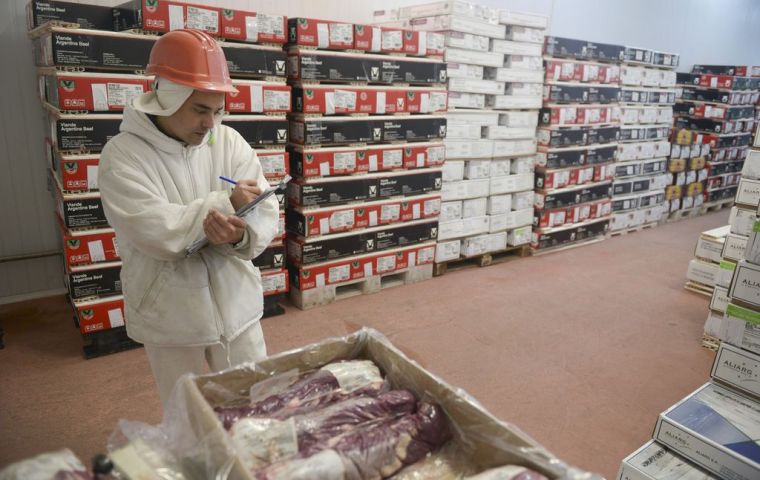MercoPress. South Atlantic News Agency
China interested in more Brazilian meat and increasing investment
 Up to 78 Brazilian meat processing plants could be added to the list of those permitted to export to China, according to a person familiar with the matter
Up to 78 Brazilian meat processing plants could be added to the list of those permitted to export to China, according to a person familiar with the matter  Regardless of whether a deal is struck, Yang said he sees Chinese demand for Brazilian soy remaining stable. “I personally think there is no need to worry”
Regardless of whether a deal is struck, Yang said he sees Chinese demand for Brazilian soy remaining stable. “I personally think there is no need to worry” China is planning to allow more Brazilian meat imports following high-level talks set for May, the Chinese ambassador to Brazil said on Monday. Yang Wanming declined to comment on how many meat processing plants could be approved to export to China but said the issue would be discussed when Brazil Agriculture Minister Tereza Cristina Dias travels to China in May.
New export permissions could be announced when Brazil’s Vice President Hamilton Mourao visits Beijing later the same month, Yang said.
“We believe through the cooperation of both countries’ agriculture ministries and quality inspection departments, more Brazilian farm and animal products can be imported into the Chinese market,” Yang said.
Up to 78 Brazilian meat processing plants could be added to the list of those permitted to export to China, according to a person familiar with the matter.
The potential boost for Brazil’s meat exports to China comes as analysts warn that talks between the United States and China to ease trade tensions could hurt demand for Brazilian soy.
Brazil is the world’s top exporter of both soybeans and beef. Chinese purchases skyrocketed after the Asian country slapped tariffs on U.S. soy in response to other tariffs announced by President Donald Trump.
Regardless of whether a deal is struck, Yang said he sees Chinese demand for Brazilian soy remaining stable. “I personally think there is no need to worry,” he said.
Chinese investment hit a seven-year high in 2017 but the figures for last year, which have not been released, are expected to have fallen amid an unpredictable election that saw the election of right-wing President Jair Bolsonaro.
Bolsonaro expressed skepticism on the campaign trail about rising Chinese investment in Brazil, but Yang said he had a long meeting with the new president in March in which Bolsonaro said he would work hard to expand bilateral cooperation.
Chinese investment could grow again in 2019, Yang said, although that will depend in part on Bolsonaro’s plan to revive economic growth with social security and tax reforms.
The ambassador said that Chinese telecom company Huawei Technologies Co Ltd was “very interested” in collaborating with Brazil on the development of fifth-generation (5G) mobile communication technology.
However, more concrete decisions would need to wait for the Brazil government to announce policy positions on how the technology should be developed, he said.




Top Comments
Disclaimer & comment rulesCommenting for this story is now closed.
If you have a Facebook account, become a fan and comment on our Facebook Page!